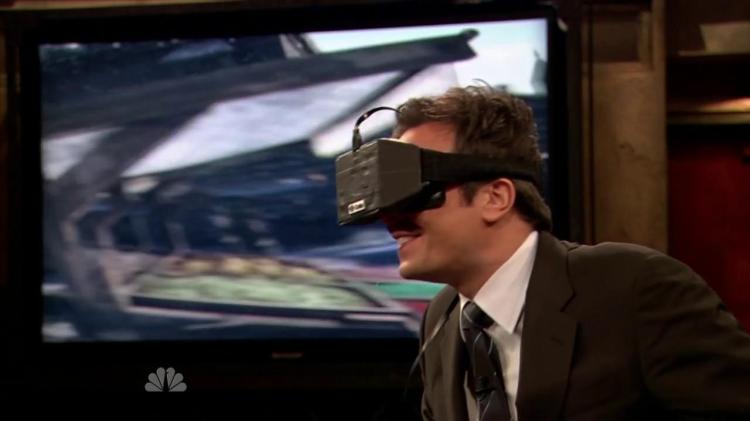The Oculus Rift virtual-reality headset is one of the next big things in computing, and this has already attracted the lawyers.
Oculus VR just released a 30-page document that defends itself from the claim that it stole trade secrets from Zenimax Media, which is the publisher of Doom, owner of Quake developer id Software, and former employer of Oculus chief technology officer John Carmack. In May, Zenimax filed a lawsuit that says Oculus Rift inventor and company founder Palmer Luckey used technology that Carmack invented while working for Zenimax. The publisher is looking for monetary relief, but Oculus VR denies the claims. This lawsuit arose just a few weeks after Facebook purchased the Oculus Rift company for $2 billion, and Luckey and his team claim Zenimax’s lawyers are simply looking to grab some of that money.
Oculus filed its documentation with the U.S. District Court for Northern Texas today, and the legal brief covers the entire history of Luckey’s work in virtual reality and his collaborations with Carmack. In fact, the defense leads off with a quote from Carmack — who is well known in the industry as one of the creators of the landmark first-person shooters Doom and Quake — where the developer denies having a hand in creating the device.
In an email to Luckey before the giant Electronic Entertainment Expo tradeshow in 2012 (where Carmack showed off the Rift), Carmack wrote:
“I am doing my best to not let anyone mistake the Rift as my work, but I’m sure someone is going to get it confused next week. I am sensitive to the fact that the press has a tendency to over-attribute things to me because ‘genius inventor’ is such a convenient story hook.”
In a post on the message board Meant To Be Seen on June 7, 2012, Carmack wrote:
“I warned [Luckey] ahead of time that it was a foregone conclusion that some of the media would report the Rift as my work, despite by very explicit description otherwise.”
Oculus didn’t stop with Carmack’s own words. The company’s legal counsel provided more than a dozen defensive positions against Zenimax’s claims. Here are all of Oculus VR’s reasons why Zenimax’s case has no merit:
- Oculus says that Zenimax’s complaint doesn’t make a claim that should grant it monetary relief.
- Zenimax asked Oculus to delay its Kickstarter because it wanted to invest, but when Luckey turned the publisher down, the company did not raise any infringement claims at that time.
- The Kickstarter campaign featured footage of Carmack and Zenimax’s Doom 3: BFG shooter, but Zenimax again did not raise a complaint at that time.
- In December 2012, Oculus sent its source code to Zenimax, and the publisher made no claims that it owned the code until a year and half later following the Facebook acquisition.
- Oculus gave Zenimax multiple opportunities to invest, and the publisher never raised any concerns about the ownership of the technology at those times.
- Oculus claims that anything its technology uses was authorized by people within Zenimax with the authority to do so.
- Federal law overrides the state law that Zenimax is using to justify some of its claims.
- Oculus says that Zenimax’s “trade secrets” were easily ascertainable through legal and regular means.
- While Zenimax and Oculus had a nondisclosure agreement, Oculus’s lawyers claim that it doesn’t constitute a binding contract because the two companies never had a sufficient “meeting of the minds.”
- Oculus claims express or implied permission to use Zenimax trademarks.
- The brief also says that Zenimax has suffered no damages.
- If Zenimax has suffered damages related to Oculus, the VR company’s lawyers say that is due to Zenimax’s own “negligence” or “carelessness.”
Finally, Oculus VR is demanding a jury trial in this case.

VentureBeat's mission is to be a digital town square for technical decision-makers to gain knowledge about transformative enterprise technology and transact. Learn More

